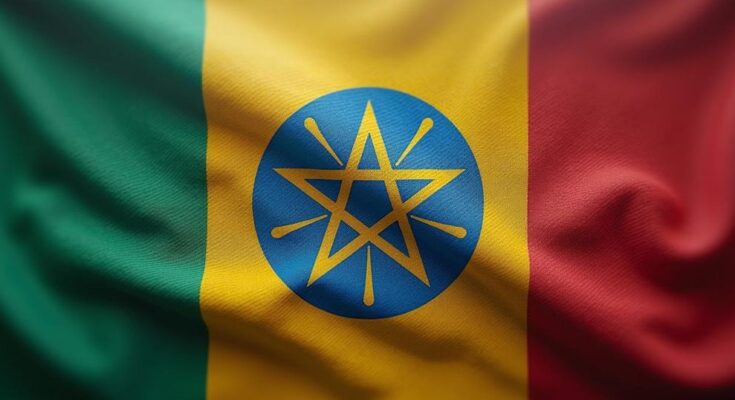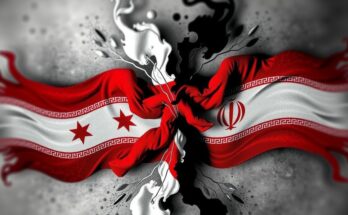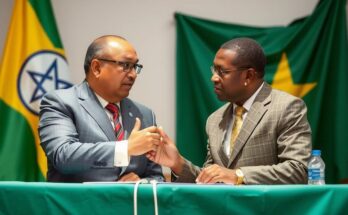On October 10, 2023, Eritrea’s President Isaias Afwerki held a trilateral summit with Somalia’s President Hassan Sheikh Mohamud and Egypt’s President Abdel Fattah el-Sisi to discuss regional security concerns and cooperation against perceived Ethiopian encroachment. This meeting reflects tensions arising from recent Ethiopian moves regarding Somaliland and aims to bolster Somali state institutions against terrorism. However, analysts suggest that while the rhetoric is strong, significant military confrontations are not imminent due to internal weaknesses of the involved countries.
On October 10, 2023, Eritrea’s president, Isaias Afwerki, convened a significant trilateral meeting in Asmara with President Hassan Sheikh Mohamud of Somalia and President Abdel Fattah el-Sisi of Egypt. The leaders deliberated over strategies to “confront interference in the internal affairs of the countries of the region under any pretext or justification,” as per a joint statement issued after their discussions. They further agreed to enhance cooperation aimed at strengthening Somali state institutions to effectively combat terrorism and uphold the nation’s borders and territorial integrity. This summit is set against a backdrop of increased tensions among the three nations and Ethiopia. Relations between Ethiopia and Somalia have deteriorated since early January, especially following Ethiopia’s memorandum of understanding (MoU) with Somaliland, a territory that Somalia claims as its own. Ethiopia’s proposal to recognize Somaliland’s independence in exchange for coastal access for a naval base has exacerbated Somali concerns. In light of these developments, Egypt has sought to capitalize on the situation by exerting pressure on Ethiopia, particularly over disputes relating to the Grand Ethiopian Renaissance Dam (GERD). Following a military cooperation agreement with Somalia in August, Egypt supplied two shipments of weapons to Mogadishu and has proposed sending troops to Somalia, potentially replacing Ethiopian soldiers currently engaged in combatting Al-Shabaab. Somalia has articulated its intention to expel Ethiopian forces by year-end unless the aforementioned MoU is rescinded. Despite previously siding with the Ethiopian government during the Tigray civil conflict, Eritrea’s relationship with Addis Ababa has soured. Afwerki is said to be discontent with Ethiopia’s peace agreements with the Tigray People’s Liberation Front and perceives a growing Ethiopian interest in Eritrean ports, lost to Eritrea following its independence in 1993. Abel Abate Demissie from Chatham House noted, “Afwerki thinks that, sooner or later, the potential for direct conflict is imminent.” However, analysts suggest that any immediate military confrontation seems unlikely, as Somalia remains weak and Egypt faces its own domestic challenges. Omar Mahmood from the International Crisis Group indicated that the current situation is more diplomatic posturing rather than an imminent conflict. Nonetheless, concerns persist regarding the evolution of relations between Ethiopia and Eritrea, with all the progress made in their 2018 rapprochement reportedly undone, leading to a reversion to a “no war, no peace” stance, as stated by Mahmood.
Eritrea’s efforts to gather support from neighboring allies stem from its longstanding tensions with Ethiopia, particularly following Ethiopia’s recent agreements regarding Somaliland. This trilateral summit with Egypt and Somalia represents a strategic alliance aimed at countering Ethiopian influence, especially in light of Egypt’s persistent worries regarding water security due to the GERD. The historical complexities of Eritrea’s relations with both Ethiopia and Somali territorial integrity issues serve as critical contexts for understanding the shifting regional dynamics.
The trilateral meeting in Asmara signals a concerted effort among Eritrea, Somalia, and Egypt to address perceived threats from Ethiopia and foster security cooperation. Despite the tensions, analysts caution that immediate military confrontations are improbable, as regional powers grapple with internal challenges. Nevertheless, the diplomatic maneuvers observed underscore shifting allegiances and the precarious situation in the Horn of Africa, necessitating ongoing scrutiny.
Original Source: www.theafricareport.com




